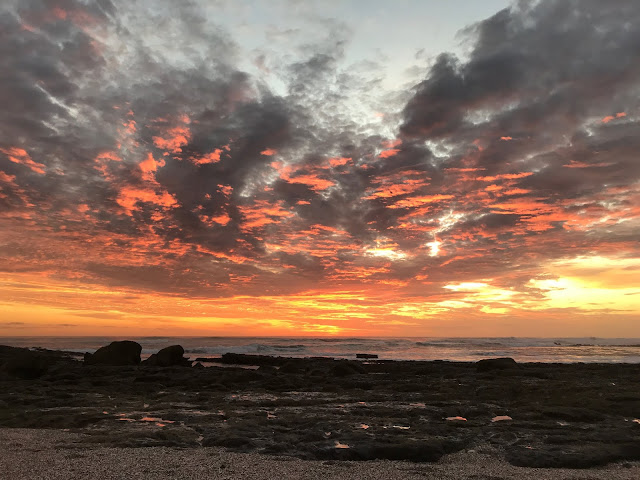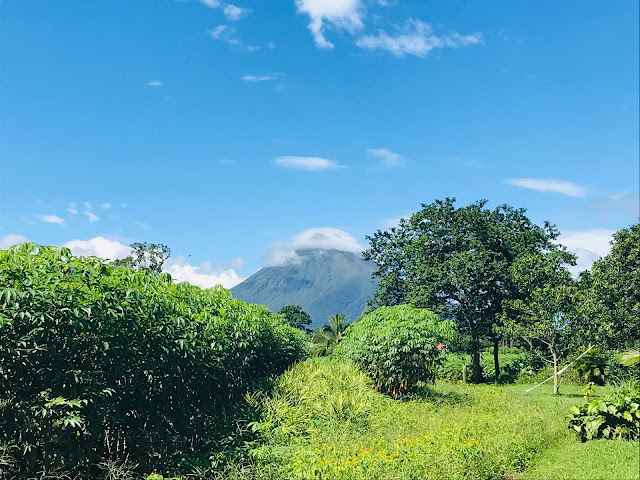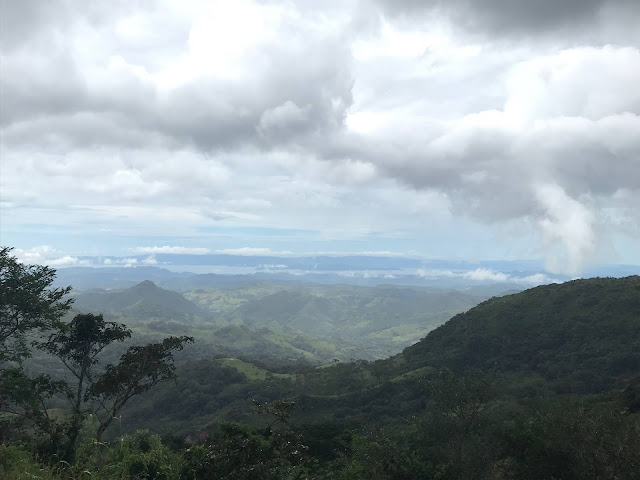Nepal, Annapurna Circuit: where one shall surrender to the mountain (part 2 of 3)
Chame - Upper Pisang - Manang
New notions of Cold
It is above 3500m. I have been on the trek for a few days, but it feels an eternity. There is no salvation from the cold. Cold has a new meaning for me, a new power, too. I hear myself using indecent words more frequently as I successfully build my lifestyle in the cold. I see my breath while falling asleep in the room, my phone cannot stay turned on outside of my sleeping bag, I have become intimate with my water bottle, which I fill in with hot water to put inside the sleeping bag every evening. I have overpassed all personal records for speedy teeth brushing, figuring out how to take a shower with some different heating solution in every lodge, and running outside to my room wet after a shower in 5-10 degrees below zero.
If one surrenders to the unusual conditions, where one is entirely dependent on the nature, the basic sanitation and the lack of distraction, they end up connecting with part of their primal nature. So do I - I surrender and accept that there are too many things I don't have any control over, so there is no use of any drama (also, I am alone, so there's no one to dramatize with). I sit wrapped in two jackets and surrender to the mountain, which is intimidatingly leaning over me and liberating me from all worries. This is the feeling of surrendering to something greater than ourselves.
And why do modern people want to climb and conquer mountains? In the ancient times, people perceived mountains as sacred, as unattainable, they did not use them to satisfy their urge for adventure and fulfillment. Perhaps because they had other things to worry about? Now we have everything and we ask ourselves - what's next? In our contemporary lives, we need to shift our environment, to put ourselves in a new situation, we want to explore our limits, to fulfill our potential, to achieve the best version of ourselves... and for good or bad, the mountains can give it all.
New notions of Walking
I walk...many hours...every single day. I wake up at 5:00 in the morning and hit the road at dawn. The higher I get, the more rocky the landscapes become. Wherever I look, there are infinite mountains - they spread over the whole horizon, all the way up to the sky. There is so much endless and pristine space all around me.
It is paradoxical that it is difficult for me to focus, because there is almost no distraction - all day, every day - just walking among the Annapurna massifs. After a few days, my brain has processed literally any thought that it could have processed and is finally ready to grasp the fascinating views and energies, which are everywhere. It is finally able to observe and be present. Some of the most joyful moments turn out to be the simplest ones - when your brain is so clear and focused, and you are one with your activity.
The Las Vegas of the Himalayas
I spend two days in Manang at 3540m in order to acclimatize for the upcoming nights at 4050m and 4450m. The high altitude is starting to make me more anxious, there are first signs of headache due to the height, and I get tired more easily. Nevertheless, I decide to make another climb of 8 hours to an Ice lake during my "rest day" to reach 4600m... clearly the mountain is making my brain function in a funky way. I guess the more I am challenged, the more I want to take as otherwise I will collapse. Apart from Ice lakes and glaciers, Manang offers the most entertainment of all villages on the way - there is a bakery, "featured on the LoVely Planet" , and a "cinema", which is located in the back of a hen house (where I do watch "Seven years in Tibet" with a bunch of backpackers, freezing collectively and eating cold popcorns).
At some point I need to share a room with a crazy Chinese girl. She is 25, came from Tibet to Kathmandu hitchhiking in a track full of chickens. She has NO luggage, no spare shoes, no winder coat, no medicines. She drinks water from the lakes, has pneumonia as it seems and also has NO money. She spots I have a full backpack and suggests that I can maybe give her some of my stuff because "I had way too many clothes"...I think to myself "That's it, she is totally stealing my clothes in the night", so I try to lock everything up. I try to befriend her by offering her some medications. On the day after she is gone early and thankfully has taken nothing else but my package of tissues and lip balm.
If nothing else, she did make sense with one thing she told me "Life without risks, is death."...but yet it is somehow paradoxical - do we need to risk our lives in order to feel alive?
The first part of my Himalayan adventures can be found here and the final one here. Thank you for your time :)
New notions of Cold
It is above 3500m. I have been on the trek for a few days, but it feels an eternity. There is no salvation from the cold. Cold has a new meaning for me, a new power, too. I hear myself using indecent words more frequently as I successfully build my lifestyle in the cold. I see my breath while falling asleep in the room, my phone cannot stay turned on outside of my sleeping bag, I have become intimate with my water bottle, which I fill in with hot water to put inside the sleeping bag every evening. I have overpassed all personal records for speedy teeth brushing, figuring out how to take a shower with some different heating solution in every lodge, and running outside to my room wet after a shower in 5-10 degrees below zero.
If one surrenders to the unusual conditions, where one is entirely dependent on the nature, the basic sanitation and the lack of distraction, they end up connecting with part of their primal nature. So do I - I surrender and accept that there are too many things I don't have any control over, so there is no use of any drama (also, I am alone, so there's no one to dramatize with). I sit wrapped in two jackets and surrender to the mountain, which is intimidatingly leaning over me and liberating me from all worries. This is the feeling of surrendering to something greater than ourselves.
And why do modern people want to climb and conquer mountains? In the ancient times, people perceived mountains as sacred, as unattainable, they did not use them to satisfy their urge for adventure and fulfillment. Perhaps because they had other things to worry about? Now we have everything and we ask ourselves - what's next? In our contemporary lives, we need to shift our environment, to put ourselves in a new situation, we want to explore our limits, to fulfill our potential, to achieve the best version of ourselves... and for good or bad, the mountains can give it all.
New notions of Walking
I walk...many hours...every single day. I wake up at 5:00 in the morning and hit the road at dawn. The higher I get, the more rocky the landscapes become. Wherever I look, there are infinite mountains - they spread over the whole horizon, all the way up to the sky. There is so much endless and pristine space all around me.
It is paradoxical that it is difficult for me to focus, because there is almost no distraction - all day, every day - just walking among the Annapurna massifs. After a few days, my brain has processed literally any thought that it could have processed and is finally ready to grasp the fascinating views and energies, which are everywhere. It is finally able to observe and be present. Some of the most joyful moments turn out to be the simplest ones - when your brain is so clear and focused, and you are one with your activity.
The Las Vegas of the Himalayas
I spend two days in Manang at 3540m in order to acclimatize for the upcoming nights at 4050m and 4450m. The high altitude is starting to make me more anxious, there are first signs of headache due to the height, and I get tired more easily. Nevertheless, I decide to make another climb of 8 hours to an Ice lake during my "rest day" to reach 4600m... clearly the mountain is making my brain function in a funky way. I guess the more I am challenged, the more I want to take as otherwise I will collapse. Apart from Ice lakes and glaciers, Manang offers the most entertainment of all villages on the way - there is a bakery, "featured on the LoVely Planet" , and a "cinema", which is located in the back of a hen house (where I do watch "Seven years in Tibet" with a bunch of backpackers, freezing collectively and eating cold popcorns).
At some point I need to share a room with a crazy Chinese girl. She is 25, came from Tibet to Kathmandu hitchhiking in a track full of chickens. She has NO luggage, no spare shoes, no winder coat, no medicines. She drinks water from the lakes, has pneumonia as it seems and also has NO money. She spots I have a full backpack and suggests that I can maybe give her some of my stuff because "I had way too many clothes"...I think to myself "That's it, she is totally stealing my clothes in the night", so I try to lock everything up. I try to befriend her by offering her some medications. On the day after she is gone early and thankfully has taken nothing else but my package of tissues and lip balm.
If nothing else, she did make sense with one thing she told me "Life without risks, is death."...but yet it is somehow paradoxical - do we need to risk our lives in order to feel alive?
The first part of my Himalayan adventures can be found here and the final one here. Thank you for your time :)





















